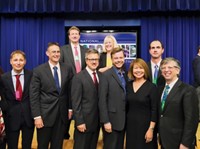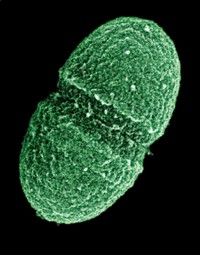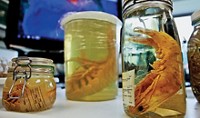Advertisement
Grab your lab coat. Let's get started
Welcome!
Welcome!
Create an account below to get 6 C&EN articles per month, receive newsletters and more - all free.
It seems this is your first time logging in online. Please enter the following information to continue.
As an ACS member you automatically get access to this site. All we need is few more details to create your reading experience.
Not you? Sign in with a different account.
Not you? Sign in with a different account.
ERROR 1
ERROR 1
ERROR 2
ERROR 2
ERROR 2
ERROR 2
ERROR 2
Password and Confirm password must match.
If you have an ACS member number, please enter it here so we can link this account to your membership. (optional)
ERROR 2
ACS values your privacy. By submitting your information, you are gaining access to C&EN and subscribing to our weekly newsletter. We use the information you provide to make your reading experience better, and we will never sell your data to third party members.
Biological Chemistry
White House announces microbiome initiative
Half a billion will go toward studying microbe communities on Earth
by Elizabeth K. Wilson
May 16, 2016
The White House launched a half-billion-dollar project on Friday to study the communities of microbes that colonize and exert profound influence on almost everything on Earth, from animal guts to soil to the ocean and even to the atmosphere.
“In the past 10 years, we’ve come to understand how essential the microbiome is to the world around us,” said Jo Handelsman, associate director for science at the White House Office of Science & Technology Policy, during a briefing to announce the project.
Numerous federal agencies, including the National Institutes of Health, the National Science Foundation, the National Aeronautics Association, and the Department of Energy, will together contribute $121 million to the project, called the National Microbiome Initiative, over the next two years.
Philanthropic organizations, universities, and industry are also committing $400 million to help fund the initiative. For example, the Bill & Melinda Gates Foundation is contributing $100 million over the next four years to study the microbiome’s role in human nutrition and crop protection.
Microbiomes have captivated the scientific world during the past decade, as researchers have come to recognize their inextricable relationship with the organisms and environments in which they reside.
For example, the microbiome that flourishes in the human gut can be influenced by diet and antibiotics, and its dysfunction has been linked to obesity and asthma. Communities of microbes living in marine environments can be affected by changing ocean temperatures or disasters such as the Deepwater Horizon oil spill. They’re also a key player in such disparate fields as biofuel technology and food processing.
Scientists have been calling for a coordinated national effort to study microbiomes for several years (Science 2015, DOI: 10.1126/science.aac8480; ACS Nano 2016; DOI 10.1021/acsnano.5b07826).
“It’s nice to bring to bear the tools of the broader community to this extraordinary initiative,” said Paul Weiss, professor of chemistry and of materials science and engineering at the University of California, Los Angeles. Weiss, one of the driving forces behind the new initiative, conducts research that focuses in part on developing tools to measure ocean microbiomes.
The National Microbiome Initiative follows in the footsteps of other government initiatives such as the BRAIN initiative and the Human Genome Project.
Committees have identified several broad goals for the new initiative, such as the development of more sophisticated tools for detecting, measuring, and modeling microbiomes, and increasing communication between researchers who might now be operating independently.
Several recurring themes have emerged during discussions of research problems, Handelsman said. Scientists need to understand what constitutes a healthy microbiome. They also need computational tools and models to help understand microbiome community behavior.
And to harness the promise of microbiomes—for example, to fix dysfunctional microbiomes or protect healthy ones—scientists need to understand their robustness. “We don’t have good tools to alter microbiomes,” Handelsman said. “The resistance of the microbiome to change is a big challenge to understand.”
Rep. Louise Slaughter (D-N.Y.), a microbiologist who has had a major influence in sounding the alarm about the overuse of antibiotics, voiced her excitement about the new initiative: “I’ve never seen anything so ready to go.”





Join the conversation
Contact the reporter
Submit a Letter to the Editor for publication
Engage with us on Twitter